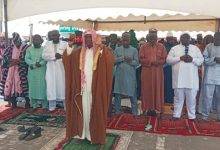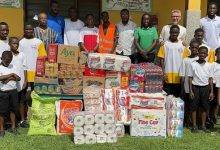
Efforts to address the plastic waste menace has received a boost with the training of women to turn plastic waste into useable products.
The training, under the environment 360 circular Innovation Hub project, being funded by the Australian High Commissions’ Direct Aid Programme (DAP), seeks to empower female waste collectors to employ innovative methods in turning waste into profitable products.
Seven female waste collectors who had been trained as part of the DAP graduated after undergoing ten months of training in waste management.
Speaking at the graduation ceremony in Accra yesterday, the Founder and Executive Director of Environment 360, Mrs Cordie Aziz-Nash, said the DAP was meant to improve the lives of women in vulnerable communities in Ghana and across West Africa through waste collection and processing.
She said there was the need to strengthen the local value chain for recycled plastics by using innovation, technology and partnerships with private sector to empower female waste pickers to move from collectors into small-scale recyclers.
“It takes more than just collection to move us into the circular economy the government of Ghana has envisioned. There are many laudable collection programmes that have been created, but now we need to focus on what is happening to the plastic being collected, how are we creating value for it locally and how can we create more opportunities for green jobs in both rural and urban communities,” she said.
Mrs Azis-Nash expressed excitement about the project and described it as a ground breaking initiative to tackle the plastic waste challenges facing the country.
As the creator of the first successful community plastic collection programme in Accra, she said Environment 360 was committed to employing technology, innovation and private-partnerships to address the plastic waste menace.
The Australian High Commissioner, Gregory Andrews, in his address said promoting gender equality and empowering women and girls was at the heart of the work of the Australian High Commission.
He said improving sanitation and waste management was one of the objects of the DAP.
“The DAP is a good example of how we can help address the problem of plastic waste through a circular economy,” he said.
Mr Andrews commended the Environment 360 for developing the project to empower vulnerable women economically, saying the organisation had played a major role in managing plastic waste across many communities across the country.
Monica Adjogeli, the overall best student stated that “I am so grateful to be part of this project. This is not just about collecting rubbish; it is about creating something big.”
BY VIVIAN ARTHUR







